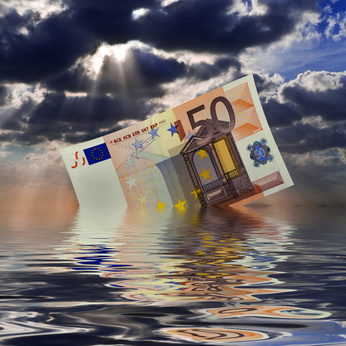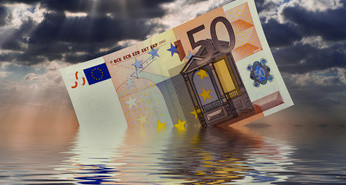The European Banking Authority has worked hard to provide a serious report about the state of the European banking system. But given the past, these tests have an excellent chance of hurting the euro, no matter the seriousness and no matter the actual results.
The problems begin with the previous report. Most of the banks passed the tests published in July 2010. The amount of capital that was needed was quite small. All the Irish banks passed the tests.
Four months later, the Irish banking system collapsed, pushing the country into a bailout that costs a lot to taxpayers. 
So this time, the EBA is making increased efforts to provide more serious tests. Indeed, one bank couldn’t handle it. The EBA started off with 91 banks. One bank “bailed out”. German bank Helaba, a Landesbank, refused to participate, arguing that the rules in the test cause it to fail.
So the tests are serious, right?
Not exactly. Greece is about to default. Perhaps others will follow. Do the stress tests test a sovereign default? No. This already casts doubt into the tests, before they even started.
Positive results mean less than 10 banks failing the tests and a small amount of capital required for them. If this is the result, the markets might cheer for a very short time.
But this report will quickly be forgotten on the next attack of the bond vigilantes or the next sovereign downgrade. It can be Italy or Spain, or perhaps even France.
And if they are serious?
And what happens if the results are bad? OK, in such a case, the EBA will be cheered for doing a good job. But wait, this means that many banks are in trouble and a lot of money is needed for recapitalization. So, good news for the EBA means bad news for the euro.
With good or bad results, the question of enforcement remains open. How will the troubled banks recapitalize? Who will force them to do it? And how?
Core European countries are slowing down. Peripheral countries are squeezing. With no economic growth, less disposable income and with a Fail mark, these banks will have trouble to make serious recapitalization plans.
What Europe really needs is growth. Lowering the interest rate is a good and quick start.
Spain is the best example.
The most exposed country is Spain. It put 21 banks for inspection, the most that any country did. Around a third of them are expected to fail. Some of the banks in Europe’s fourth largest economy are in trouble because of problematic mortgages.
Most of these mortgages are using the euribor which is attached to the ECB rate. A lower interest rate means less defaults, and an easier path for these banks and the whole continent to recover.
All in all, these tests aren’t likely to be helpful to the euro. For more about EUR/USD see the euro.
